Some believe that the 2018 presidential elections in Mexico are the most important since 1910.
That year, the re-election of then-President Porfirio Díaz sparked the Mexican Revolution, which killed a million people and changed the life of the country.
Others, on the other hand, see the current elections as a very close competition, as few times in decades.
But what almost everyone agrees on is that this July 1, when Mexicans elect the successor of President Enrique Peña Nieto, it is a process such as had not occurred in almost a century.
Although they have been traveling around the country for a few months, the campaign officially begins this April 1.
It is the final stretch of a process where there are unpublished issues, such as the participation of independent candidates or the vote for the first time of 11 million young people.
1. Giant choice
With the withdrawal of the candidate Margaret Zavala, a former member of the National Action Party (PAN) and who presented himself as independent, there are three candidates in dispute for the Mexican government.
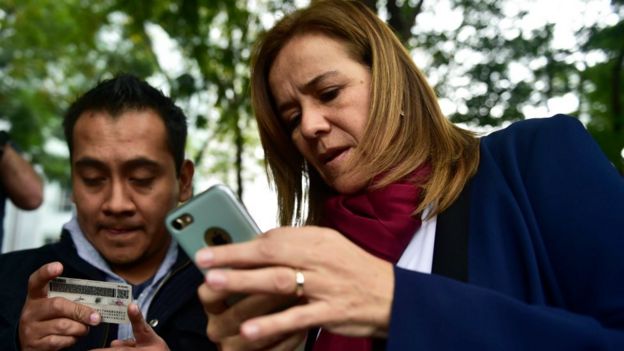
Jose Antonio Meade, nominated by the All for Mexico coalition formed by the ruling Institutional Revolutionary Party (PRI), together with the Nueva Alianza (PANAL) and Verde Ecologista de México (PVEM) parties.
It also contends Ricardo Anaya, from the Por México al Frente coalition created by the parties of the Democratic Revolution (PRD), Movimiento Ciudadano (MC) and the PAN.
And the last contender is Andrés Manuel López Obrador, of the Together We Will Make History coalition formed by the National Regeneration Movement (Morena), with the Labor (PT) and Social Encounter (PES) parties.
This July 1, in addition to electing a president, Mexicans will vote for candidates for governors, a head of government, mayors, councilors, councilors, municipal boards, receiverships, senators, and local and federal deputies.
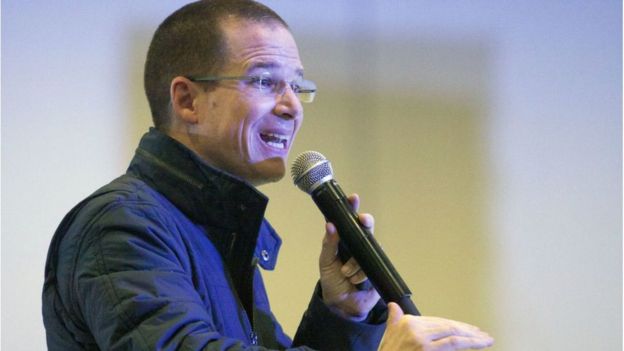
According to the National Electoral Institute (INE) there are 18,311 public positions in dispute, the first time that so many have been elected in a single process.
There are other numbers. The nominal list of voters is 89 million people, the highest in history.
Since last October, when the electoral period began, and until July 1, it is estimated that about 60 million messages from the candidates will be broadcast on radio and television.
A huge process, and also expensive. According to INE data, the money to finance political parties, the organization of the elections and the spending of the electoral authorities will be almost 33,000 million pesos.
Some US$1.800 million, without counting the expenses that the candidates make with private financing.
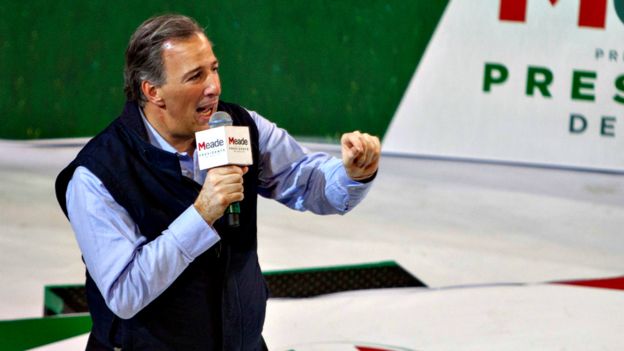
2. The hour on the left?
In the 2018 presidential race, the name that is repeated the most in traditional media and internet networks is Andrés Manuel López Obrador.
For example, a survey conducted by GLAC-Pulso on the Web of the newspaper El Financiero reveals that between March 17 and 23, López Obrador had almost 690,000 references on the internet.
Of the four presidential candidates, he is the one that is mentioned the most on social media. And it shows in the polls.
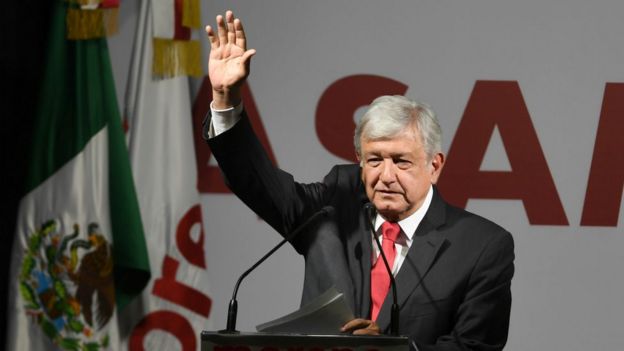
Since mid-2017, practically all the measurements on the intention to vote have placed the candidate of Juntos Haremos Historia as a pointer.
It is not the first time that López Obrador has led electoral polls, since in the 2006 presidential campaign he started as a favorite but officially lost the contest.
Ahora analistas políticos como Sergio Sarmiento ven un escenario distinto. “Si no comete errores tiene segura la presidencia, pues no lo rebasarán” sus contrincantes, dijo al diario Reforma.
One advantage of the candidate in this race is that some of his former opponents are on his team.
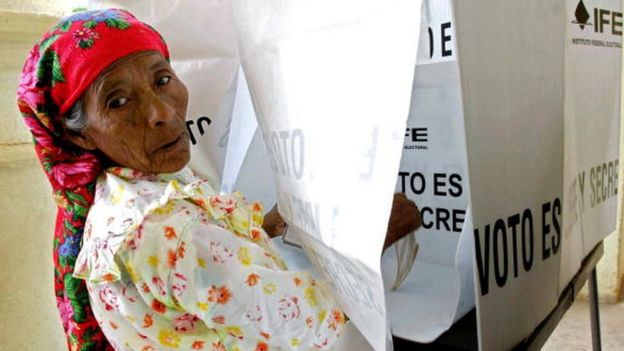
And he also maintains a new attitude: unlike campaigns like 2006, now López Obrador tries to get away from controversies.
Su mensaje es, suele decir, “de amor y paz”.
3. A ghost reappears
A taboo subject in Mexico, since it was banned in 1933, returns in the current elections.
Is about reelection, which for decades remained oblivious to political discussion, until 2014 when the electoral laws changed. This year mayors, deputies and senators are allowed to compete in the campaign to occupy the same position again. They are, for now, the only ones authorized to do so.
But unlike places like the United States, where legislators can be re-elected for decades even, in Mexico it is only allowed for a maximum of 12 years.
However there are few candidates for reelection.
Of the thousands of positions in dispute, a few dozen will again seek the vote of their electors.
The final number will be known in the coming weeks when the INE finishes reviewing the files of the candidates.
4. El drama de los “independientes”
For 66 years in Mexico, the only way to participate in an election was with the backing of a political party.
Independent candidates were banned in 1946 by then-President Manuel Ávila Camacho.
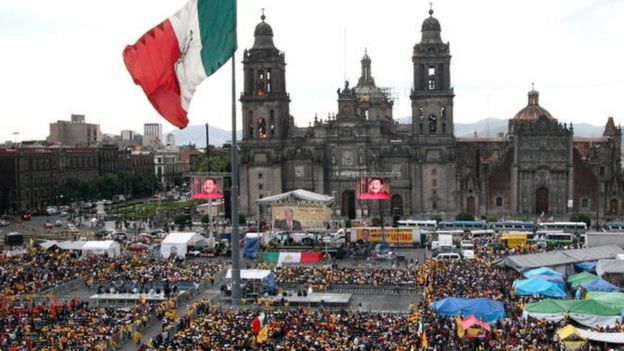
Since then there have been some attempts by citizens to compete in the elections, but their participation was declared illegal.
The lock was opened with the 2012 electoral reform.This year, 48 people were registered as independent candidates for the country's presidency.
To run, they had to get the support of at least 866,593 people with the right to vote, who had their voter credentials scanned with an INE App.
In the end, only three candidates reached the goal, providing almost double the necessary support:
- El gobernador con licencia de Nuevo León Jaime Rodríguez, “El Bronco”;
- el exsenador Armando Ríos Pitter, “El Jaguar”,
- Margarita Zavala, wife of former President Felipe Calderón.
All three, by the way, fueron militantes de partidos políticos antes de presentarse como “independientes”.
Pero los dos primeros quedaron descalificados. El INE rechazó la mayor parte de los apoyos de “El Bronco” y “El Jaguar” porque resultaron falsos.
And although Calderón's wife was rejected as irregular, the 45% of their supports, those that remained were barely enough to validate their registration.
The INE's decision caused controversy. Many, such as the activist María Elena Morera, president of the Causa en Común organization, asked to disqualify the candidate.
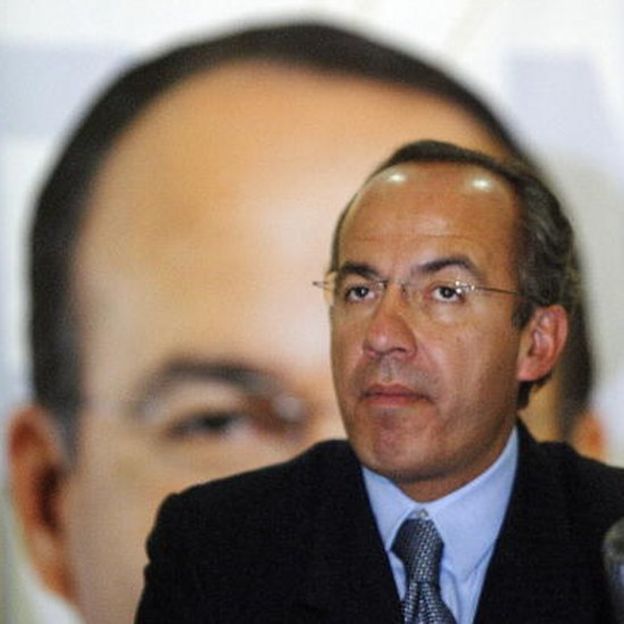
“Margarita Zavala hizo trampa, aunque le alcanzó. Fue una vergüenza este proceso”, escribió en Twitter.
5. La balanza “Millennial”
They can define the fate of the presidential election. It is about 12 million young people who will vote for the first time on July 1.
According to specialists, their participation may be fundamental, not only because of the number they represent but also because the majority do not have a specific political preference.
According to academics such as Macarita Elizondo, from the National Autonomous University of Mexico (UNAM), it is in this part of the population where the parties and electoral authorities should focus their attention.
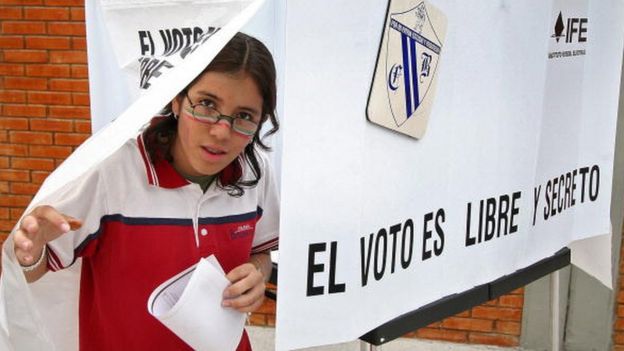
And one additional element: Most of these first-time voters may be oblivious to disqualifications among candidates.
An example is the accusation against López Obrador that, if he wins the elections, he would apply a government similar to that of the controversial former president Luis Echeverría (1970-1976).
During this period, the country suffered the beginning of a serious political crisis that began to overcome two decades later.
But the name of the ex-president says nothing to young people, say analysts such as Ana Paula Ordorica.
“Asustar con que López Obrador implica el regreso de Echeverría es hablar sobre algo que no comprenden” these voters, he wrote in the newspaper El Universal.
Presidential candidates, then, need the faithful of these young people to tip the electoral balance for them.
FOUNTAIN: BBC World









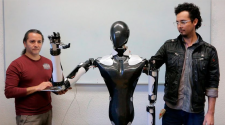




No Comment